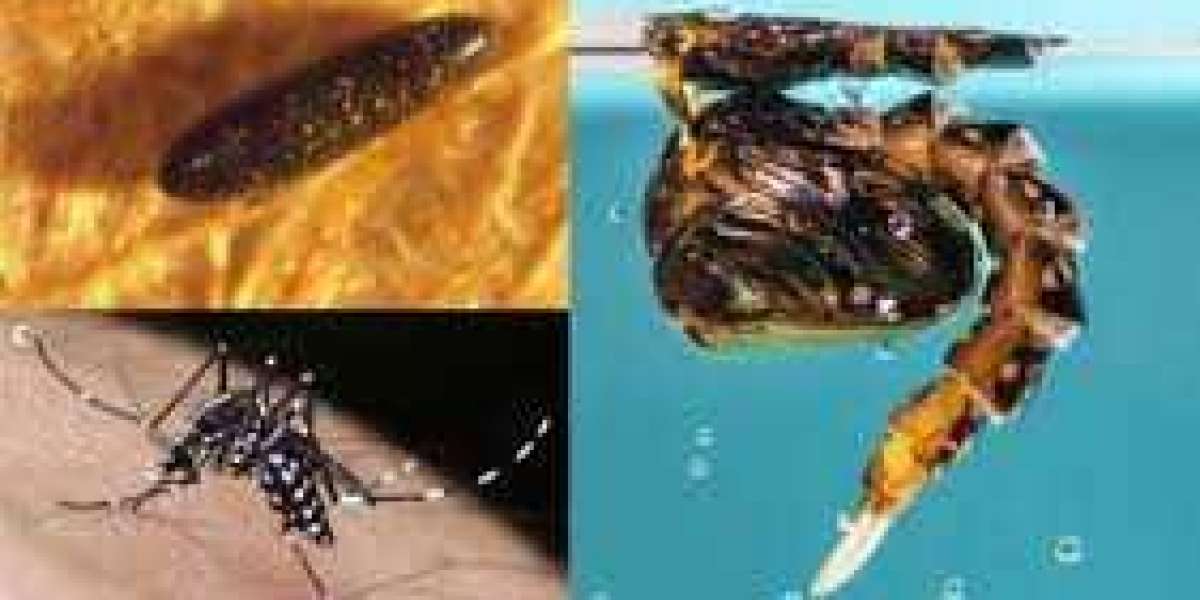Vector-borne diseases, such as malaria, dengue fever, Zika virus, and chikungunya, represent some of the most significant global health threats, affecting millions of people worldwide each year. These diseases are transmitted primarily by mosquitoes and other vectors, which can breed in various environments, spreading pathogens and leading to outbreaks in many parts of the world. To combat this pressing challenge, there has been a rise in the demand for highly trained professionals who specialize in vector control and mosquito management. One effective way of gaining expertise in this field is through pursuing advanced academic qualifications, such as a Master in Mosquito Vector Control.
This guest post delves into the importance of mosquito and vector control, the curriculum of a master's program in this field, its significance in public health, and why aspiring professionals should consider this path to help combat the ever-growing problem of vector-borne diseases.
The Growing Challenge of Vector-Borne Diseases
Vector-borne diseases are caused by pathogens that are transmitted by living organisms, typically insects, to humans. These insects are referred to as "vectors," and mosquitoes are among the most well-known and dangerous. According to the World Health Organization (WHO), vector-borne diseases are responsible for over 17% of all infectious diseases, causing over 700,000 deaths annually.
Among the various vector-borne diseases, mosquito-borne illnesses take a particularly significant toll on global health. Malaria alone causes nearly 200 million cases every year, primarily in sub-Saharan Africa, while diseases like dengue fever, West Nile virus, and Zika have emerged as major public health concerns in tropical and subtropical regions. In recent years, the spread of these diseases has been exacerbated by global warming, urbanization, and increased international travel, creating new challenges for health professionals and policymakers.
Given this context, the need for trained experts in mosquito and vector control has never been more pressing. These professionals are responsible for implementing strategies to reduce the population of vectors, prevent disease transmission, and ultimately safeguard public health.
What is a Master in Mosquito Vector Control?
A Master in Mosquito Vector Control is an advanced graduate degree designed to equip students with the knowledge and skills required to tackle the complex and multifaceted problem of vector-borne diseases. This program typically combines theoretical learning with hands-on practical experience, enabling students to gain a deep understanding of the biology of vectors, disease transmission dynamics, surveillance techniques, vector control strategies, and public health interventions.
Graduates of this program are prepared to work in a variety of fields, including public health organizations, government agencies, research institutions, non-governmental organizations (NGOs), and private sector companies involved in vector control and disease prevention.
The program covers a range of subjects related to entomology, epidemiology, environmental science, and public health. Students also learn how to design, implement, and evaluate mosquito control programs in real-world settings.
Curriculum and Course Structure
A typical Master in Mosquito Vector Control program usually spans one to two years, depending on the institution and whether the student is studying full-time or part-time. The curriculum is designed to provide both foundational knowledge and specialized expertise in vector control.
Core Subjects
Introduction to Medical Entomology: This course provides a comprehensive overview of the biology of mosquitoes and other vectors. Students learn about the lifecycle, behavior, and ecological requirements of vectors, as well as their role in disease transmission.
Epidemiology of Vector-Borne Diseases: This subject focuses on the study of the distribution and determinants of vector-borne diseases. Students learn how to track disease outbreaks, analyze epidemiological data, and understand the factors that contribute to the spread of diseases.
Vector Surveillance and Monitoring: Accurate monitoring is essential for effective vector control. This course teaches students the methods and tools used to detect and monitor mosquito populations, as well as how to analyze surveillance data to guide control measures.
Vector Control Methods and Strategies: This is one of the most crucial courses in the program. It covers various vector control techniques, such as the use of insecticides, biological control agents, environmental management, and genetic methods like genetic modification or sterile insect techniques.
Environmental and Ecological Considerations: Effective vector control strategies must take into account environmental and ecological factors, including the impact on non-target species. This course teaches students how to design sustainable control programs that minimize harm to ecosystems.
Public Health and Policy: Students gain insights into how vector control fits into broader public health strategies. They also learn about the policies, regulations, and ethical considerations that govern vector control activities, particularly in low-income or resource-limited settings.
Vector Control Program Management: This course focuses on the practical aspects of managing large-scale vector control programs. Topics include resource allocation, community involvement, cost-effectiveness analysis, and program evaluation.
Practical Experience and Research Opportunities
Most Master in Mosquito Vector Control programs also incorporate practical training through fieldwork, laboratory experiments, and research projects. Students may have the opportunity to conduct research on new vector control methods, study the efficacy of existing interventions, or assess the impact of vector control efforts on disease transmission.
Students often collaborate with health authorities, NGOs, and research organizations to gain experience in real-world settings. Field trips to locations affected by vector-borne diseases or internships with health organizations are common ways to gain hands-on experience.
The Importance of Vector Control in Public Health
The control of mosquitoes and other disease vectors plays a pivotal role in preventing and managing the spread of infectious diseases. Historically, efforts to control malaria and other mosquito-borne diseases have resulted in significant public health improvements, such as the reduction of malaria-related mortality rates in various countries.
Vector control is not just about reducing the number of mosquitoes; it also involves addressing the underlying causes of vector-borne diseases. For example, understanding how environmental factors such as rainfall, temperature, and urbanization influence mosquito populations is critical to developing effective interventions. In addition, a comprehensive approach to vector control involves educating communities about proper sanitation practices, eliminating breeding grounds, and promoting the use of protective measures like insecticide-treated bed nets.
The growing resistance of mosquitoes to traditional insecticides presents another major challenge. Mosquitoes that carry diseases like malaria have developed resistance to several classes of insecticides, making traditional control methods less effective. As a result, there is an urgent need for new, innovative strategies to control mosquito populations. This underscores the importance of having well-trained professionals in the field who are equipped with the latest knowledge and tools to address these challenges.
Career Opportunities and Job Prospects
Graduates of a Master in Mosquito Vector Control program have numerous career opportunities in public health, research, and environmental management. Some potential career paths include:
- Epidemiologist: Epidemiologists who specialize in vector-borne diseases play a critical role in monitoring disease outbreaks, analyzing trends, and guiding control interventions.
- Vector Control Program Manager: These professionals are responsible for managing large-scale vector control programs, coordinating efforts across multiple stakeholders, and ensuring the effectiveness of control measures.
- Research Scientist: Many graduates go on to conduct research in academic or government research institutions. Their work may focus on studying mosquito behavior, developing new control technologies, or evaluating the effectiveness of existing interventions.
- Public Health Consultant: Consultants provide advice to governments, NGOs, and other organizations on how to design and implement effective vector control programs.
- Environmental Health Specialist: These professionals focus on the environmental factors that contribute to the spread of vector-borne diseases and develop strategies to mitigate these risks.
The demand for trained professionals in mosquito and vector control is expected to grow as the threat of vector-borne diseases increases globally. Public health organizations, government agencies, and international health organizations are actively seeking experts to help tackle this pressing issue.
Conclusion
The fight against vector-borne diseases is more important than ever, and a Master in Mosquito Vector Control offers a unique and valuable opportunity for individuals passionate about making a positive impact on global health. By gaining advanced knowledge and expertise in mosquito biology, disease transmission, and control methods, graduates of this program are equipped to play a key role in reducing the burden of vector-borne diseases around the world.
With the growing challenges posed by insecticide resistance, climate change, and urbanization, the need for skilled professionals in vector control will continue to rise. For those dedicated to improving public health and preventing the spread of diseases, this master’s program provides the knowledge and tools necessary to contribute meaningfully to the fight against these deadly diseases.

